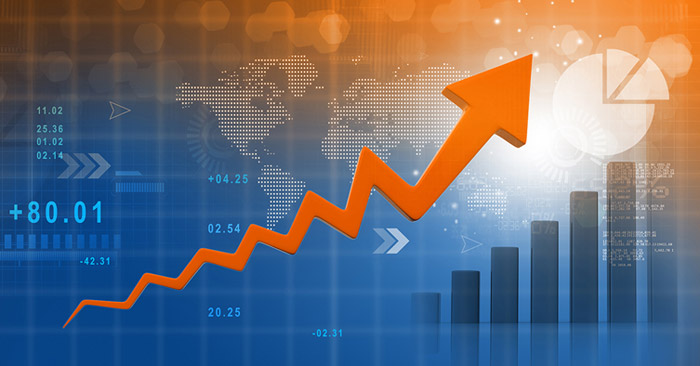Rethinking Lifestyle
Economic Growth – Can it Continue?

Growth is the marker of success in news reports about the state of the economy. Greater growth is considered good, slow growth or recession is considered bad.
Our economy grows as a percentage of the previous year. This is called exponential growth. A handy trick to estimate the doubling time for anything growing exponentially: Divide the percent growth into 70. If the average annual growth rate is 2.0%, Canada’s economy doubles in 35 years.
Whether you are aware of this or not, positive economic growth is important to you. As population increases, inevitably demands on resources increase, making each of us poorer – the “Malthusian Trap”. But a growing economy compensates for that, finding ways of extracting more and more resources every year. Without growth, we would receive little to no interest on investments, and our pension deposits would gain no value over time. Business enterprises could only expect to break even. And since today’s global economy is structured around interest and growth, stopping growth would mean collapse – collapse not only for your pension plan, but also for the value of money itself – and of the political and judicial structures that are closely tied to it. The recent pandemic has caused a retraction of the economy. We can already see the effects, and efforts are all directed towards restoring growth. So although we may be uncomfortable with some consequences of exponential growth, we can say that growth is good in that it sustains our current way of life. Without exponential growth, everything we have come to depend on loses its foundation.
But, here is the difficult part: economic growth will end, soon.
But how – and why so sure? Consider a child’s growth: in the early years, a child’s physical growth is a marker of health. The greater the gains, the healthier the child! But continual growth beyond normal limits does not mean the same thing. It means health problems, illness, and death. This was sadly the case for Robert Wadlow who grew to an incredible 8’11”, 440lbs before dying prematurely at age 22.
Unfortunately, this is the fate of anything that grows beyond natural limits: Children, populations of bacteria or reindeer, civilizations, cancer cells… everything must stop growing or be destroyed. Our way of life is no exception. But after thousands of years of growth, why now? With vast supplies of energy, fertilizer and unlimited technological potential, can’t we keep growing? Well, let’s apply the math of exponential growth to our use of energy, as an example:
Since 1650, US energy consumption in all forms has increased exponentially by an average of 2.9%/yr. Overall global trends are similar. Much of this energy currently comes from fossil fuels. If this rate of consumption continues, it will lead us to a cataclysmic 3°C global temperature rise by 2100 – ending growth long before reaching that point.
So, some say, we can shift to solar. After all almost as much solar energy reaches Earth in one hour as we consume in a year (13 terawatts). Nevertheless even if we build half a million square kilometers of solar panels, we’ll be using all of the energy we can capture (17.8 tW) in less than 13 years. Even if we were to invent 90% efficient panels and build those instead, that would give us 75 years, starting now. Even if, magically, we could create unlimited energy with no pollution, the waste heat from our activity on Earth would boil the oceans in less than 450 years.
Continued exponential growth of energy, food, water, air and raw material consumption means that no matter what, at one point the growth will get out of hand. We are at that point.
This is a problem humans have never faced before: the final global limit. Many civilizations have succumbed to local growth limits, but it is only now – after millennia of constant growth – that all of humanity is reaching the same point. “Greening the economy” can help, but economic growth must slow and stop.
So what can we do? First: Understand that the economy is not life itself. We can start valuing relationships, creativity and spirituality over things we can consume. Consume less of everything from now on. Second: Learn how to want less and produce more. Garden, make/fix things, share. Third: Explore growth-secure technologies like regenerative agriculture, and become familiar with the concept of a steady-state economy. Fourth: Stop voting for growth – both with your vote and with your money. The post-growth world we’re heading into now will be very different. It may lead to difficult but exciting changes. Our challenge will be to face it with civility and humanity.




